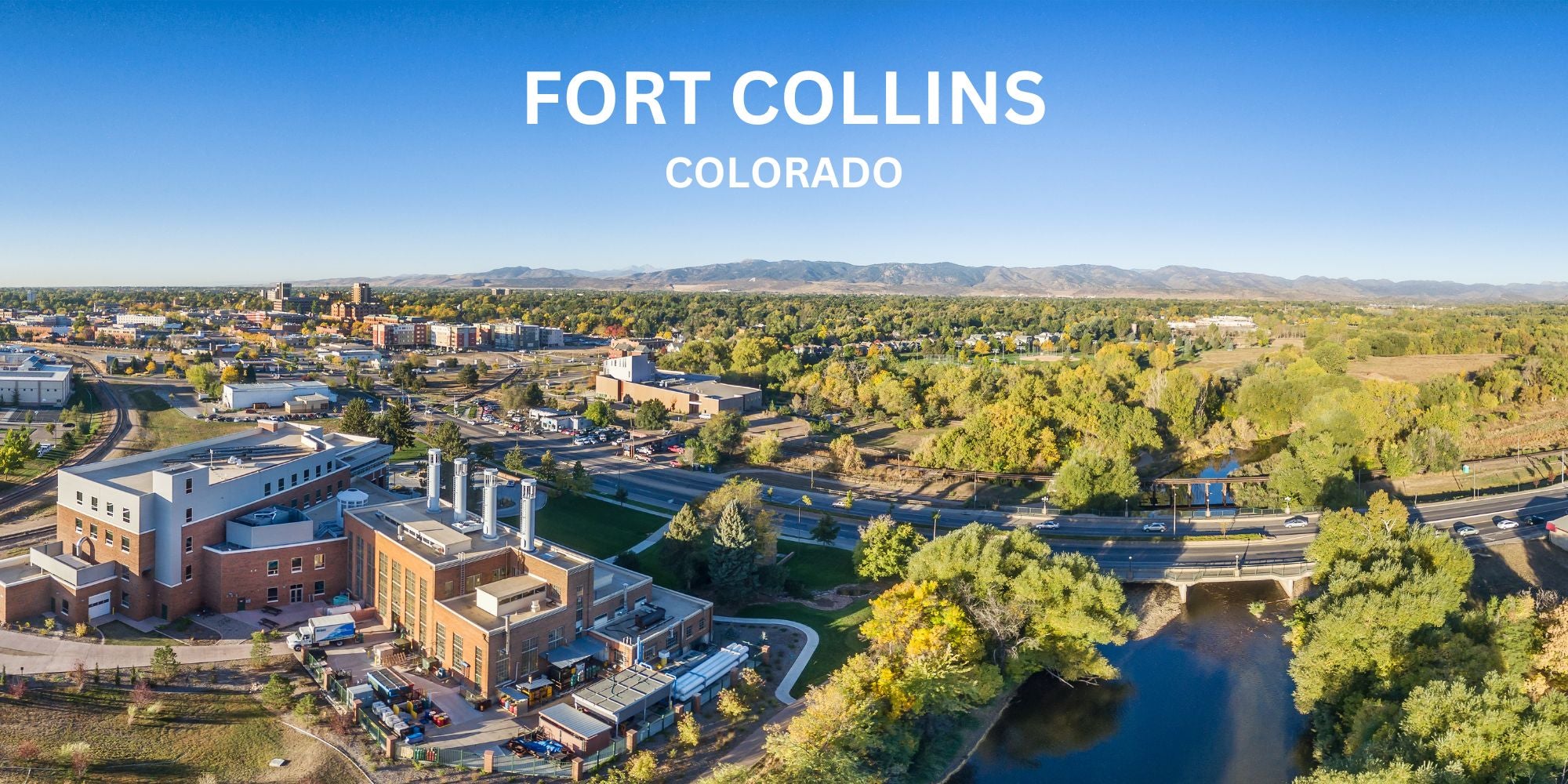
As one of the most popular metro cities in Colorado, Fort Collins may take visitors by surprise with altitude sickness. As a local company with high altitude experience, we'll share everything you need to know about the altitude of Fort Collins Colorado and seven tips to avoid Fort Collins altitude sickness.
Fort Collins altitude sits at 5,003 feet high above sea level. In the front range, it's just slightly lower than the altitude of Denver at 5280 feet.
Fort Collins is a beautiful metro city of Colorado with plenty to offer its residents and visitors, including a walkable downtown area, local breweries, and a variety of outdoor activities.
The many outdoor natural attractions include Horsetooth Mountain, Poudre River, Coyote Ridge (Foothills Natural Areas), Horsetooth Reservoir, and the Rocky Mountain National Park.
Altitudes of Ft Collins CO nearby areas:
At almost a mile high, Fort Collins is a location that you have to still be prepared for altitude sickness.
Yes, Fort Collins Colorado is considered high altitude.
The International Society for Mountain Medicine considers 4,900 to 11,500 feet as high altitude. At the lower part of this spectrum, 5,003 feet in altitude of Fort Collins is consider high altitude.⁷
Yes, you can get altitude sickness in Ft Collins CO.
A professor at the professor University of Colorado School of Medicine says the risk of altitude sickness in visitors of Denver is up to 10%. Being that Denver and Fort Collins are nearly the same in altitude, it would safely suggest a similar risk in Fort Collins.⁸
While the symptoms at these altitude might be more subtle, many visitors may never realize that the headaches, fatigue, difficulty breathing, and sleeping issues are coming from altitude sickness.
The effects of Fort Collins altitude sickness are caused by the lower oxygen content of air at higher altitudes, causing hypoxia in the body.
When you travel to a high-altitude location such as Fort Collins, your body goes through changes to adapt to the decreased oxygen content, oxidative stress, and even dehydration from the dry climate.
If these changes do not occur properly or quickly enough, altitude sickness (or acute mountain sickness) may develop, such as headaches and nausea.
The symptoms of Fort Collins CO altitude sickness may include:
These altitude sickness symptoms typically develop within 6-24 hours. Keep an eye out for signs of altitude sickness, and take the right precautions ahead of time to avoid it with our tips below.
A high percentage of visitors get altitude sickness in Colorado, due to the lack of acclimatization when first coming from sea level.
In the mountains, incidences of altitude sickness can be as high as 50% when going over 10,000 feet.¹³ In the metro areas like Fort Collins, Denver, and Colorado Springs — cases of altitude sickness will be lower, but even minor symptoms may happen without knowing it's coming from the high altitude.
People flock to the foothills of Fort Collins CO, as there's an absolute treasure trove of outdoor activities, adventure, and natural beauty. But getting used to the altitude of Fort Collins can be difficult for those who aren’t used to it — leading to altitude sickness.
Being based out of Colorado with years of high altitude experience, we'll share our top researched tips to help you avoid Fort Collins altitude sickness.
Here's seven tips to avoid Fort Collins CO altitude sickness:
In conclusion, follow these top researched tips to avoid Fort Collins altitude sickness — including to not overdue it, boosting hydration, gradually ascending, taking breaks, avoiding alcohol, getting enough sleep, and supplementing antioxidants.

Based out of Colorado, Zaca is used by locals and visitors alike for everything from skiing and hiking to flying and après-ski. These chewables are made with a blend of natural nutrients to help you recover faster, enhance your performance, and travel with ease. Formulated with antioxidants like glutathione and other amino acids, you can rehydrate and replenish quickly. With portable on-the-go packets, simply take 2-4 chewables a day while traveling or as needed. Try Zaca chewable tablets today and fuel your mountain trip.
SOURCES:
1. Fort Collins CO Altitude
https://en.wikipedia.org/wiki/Fort_Collins,_Colorado
2. Horsetooth Mountain Elevation
https://en.wikipedia.org/wiki/Horsetooth_Mountain
3. Cache la Poudre River Elevation
https://en.wikipedia.org/wiki/Cache_la_Poudre_River
4. Rocky Mountain National Park Elevation
https://en.wikipedia.org/wiki/Rocky_Mountain_National_Park
5. Horsetooth Reservoir Elevation
https://en.wikipedia.org/wiki/Horsetooth_Reservoir
6. Loveland Colorado Elevation
https://en.wikipedia.org/wiki/Loveland,_Colorado
7. Effects of high altitude on humans
https://en.wikipedia.org/wiki/Effects_of_high_altitude_on_humans
8. Don’t let altitude sickness ruin your trip to Colorado
https://www.denverpost.com/2016/11/23/altitude-sickness-tips-colorado/
13. Patient education: High-altitude illness (including mountain sickness)
https://www.uptodate.com/contents/high-altitude-illness-including-mountain-sickness-beyond-the-basics
14. Why Do You Need to Drink a Lot of Water at a High Altitude?
https://www.livestrong.com/article/360485-how-to-train-for-high-altitude-hiking/
15. Sleep: The Secret Ingredient of Injury Recovery
https://www.orthocarolina.com/media/sleep-the-secret-ingredient-of-injury-recovery
16. Effects of Alcohol
https://www.ahajournals.org/doi/full/10.1161/01.HYP.29.6.1278#
17. High altitude and oxidative stress
https://pubmed.ncbi.nlm.nih.gov/17482529/
18. Effect of high altitude (7,620 m) exposure on glutathione
https://pubmed.ncbi.nlm.nih.gov/11320641/
Copy the coupon code & use it at checkout